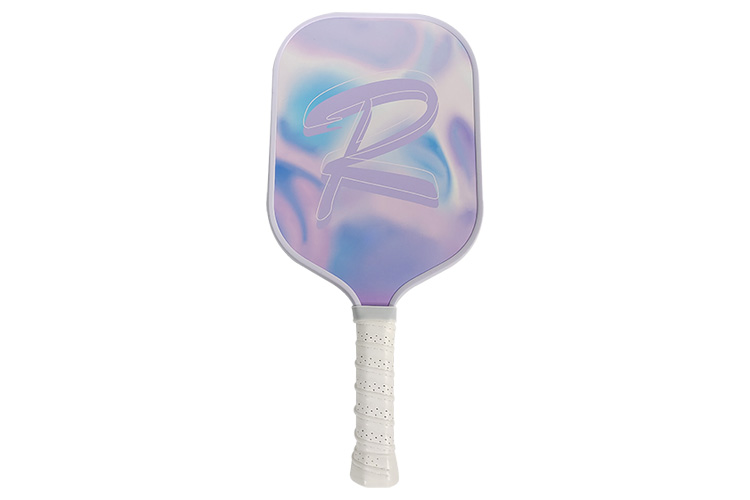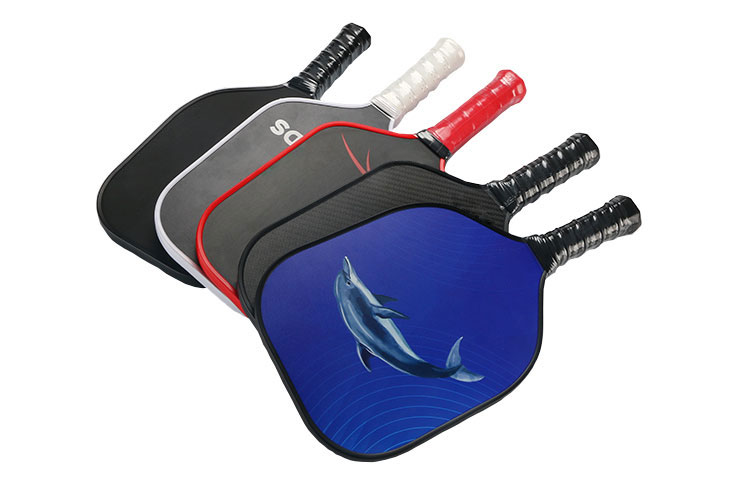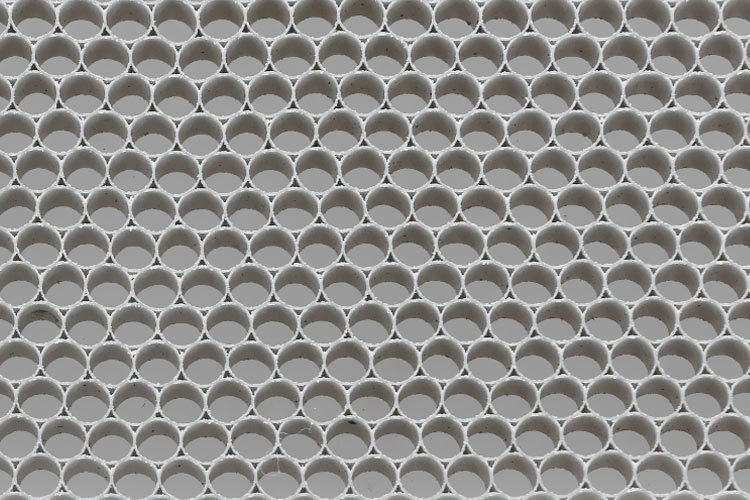What Is the Best Pickleball Paddle Material?
Pickleball has swiftly become a beloved sport for many, combining elements of tennis, badminton, and ping-pong. Whether you are a beginner or an experienced player, picking the right paddle is important for your game.
The material of your pickleball paddle can significantly impact your playing style and performance. But what is the best material for a pickleball paddle? Let’s explore the different options available.
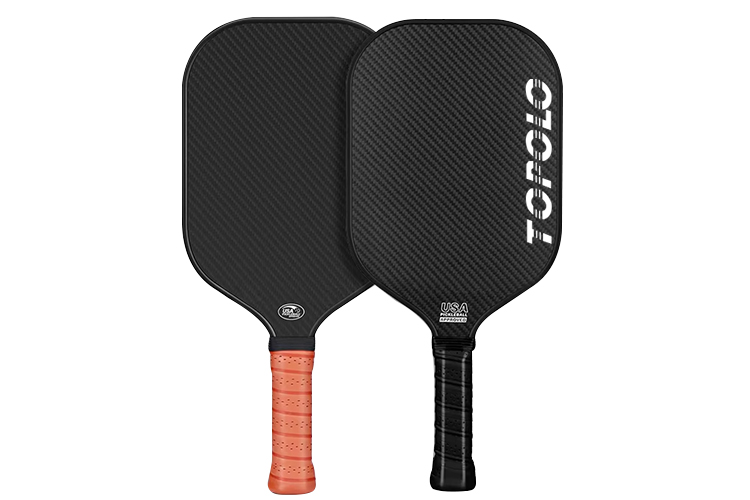
Types of Pickleball Paddle Materials
The market offers a variety of materials for pickleball paddles, each with its unique characteristics. The most common materials include wood, composite, and graphite. Understanding the differences can help you make the best choice for your needs.
Wood Paddles
Wood paddles are the traditional choice for pickleball. Generally, they are heavier and more affordable compared to alternative materials. While they might not perform as well as other options, they are strong and good for beginners or players on a budget.
Pros:
- Affordable
- Durable
- Great for recreational play
Cons:
- Heavier weight can lead to fatigue
- Less power and control compared to other materials
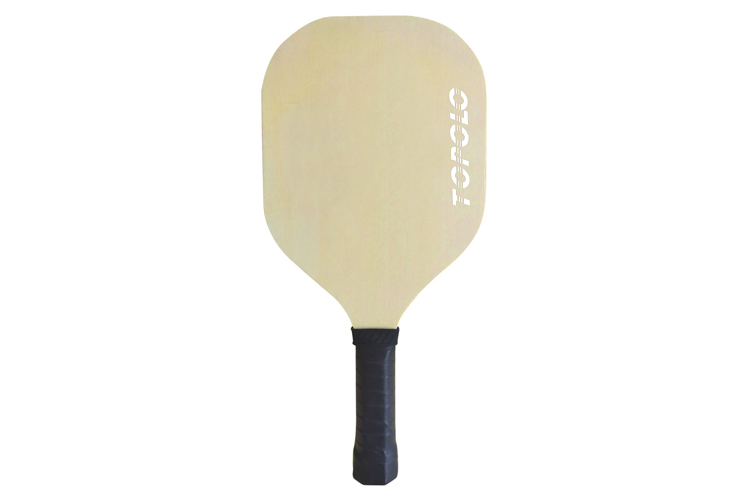
Composite Paddles
Composite paddles are popular among players looking for a balance between power and control. They are made from a combination of materials such as fiberglass, carbon fiber, titanium, and kevlar. These paddles usually have a core made of polymer, aluminum, or Nomex.
Pros:
- Offers a good balance of power and control
- Available in a wide range of weights
- Textured surface for enhanced spin
Cons:
- Can be more expensive than wood paddles
- Durability varies depending on the quality of materials used
Graphite Paddles
Graphite paddles are lightweight and provide excellent control, making them a favorite among competitive players. These paddles have a core made of aluminum or polymer. They also have an outer layer of graphite, which gives a responsive feel.
Pros:
- Lightweight, reducing player fatigue
- Superior control and touch
- Ideal for players who prioritize precision
Cons:
- Generally more expensive
- Less power compared to composite paddles
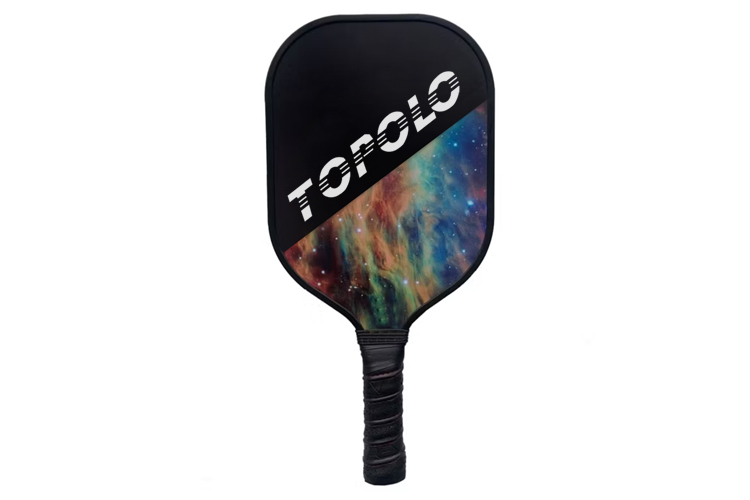
Choosing the Best Material for Your Play Style
When selecting the best material for your pickleball paddle, consider your playing style, skill level, and budget.
Beginners
For beginners, wood paddles can be a practical choice because of their affordability and durability. However, if you’re serious about improving your game, investing in a composite paddle might be worthwhile. Composite paddles provide a good mix of power and control, helping new players develop their skills.
Intermediate Players
Intermediate players often benefit from composite paddles. The versatility of composite materials allows players to experiment with spin and power, enhancing their overall game. These paddles are also available in various weights, making it easier to find one that suits your preference.
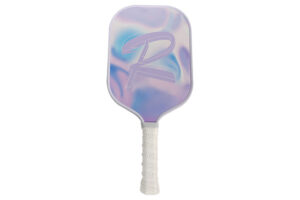
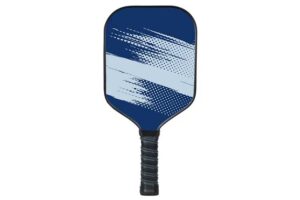
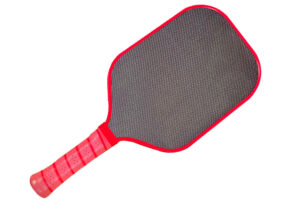
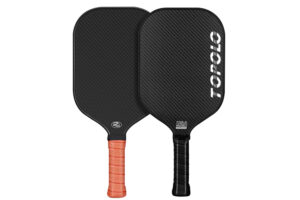
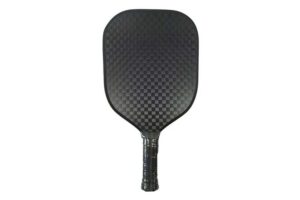
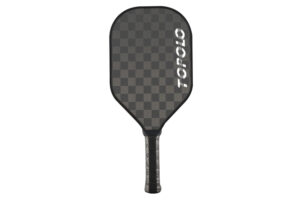
Advanced Players
Advanced players usually prefer graphite paddles because of their lightweight nature and exceptional control. Precision is key at higher levels of play, and graphite paddles offer the responsiveness needed to execute precise shots. Though they can be expensive, the investment can pay off for those looking to compete seriously.
Factors to Consider When Choosing a Paddle
Beyond the material, several other factors should influence your paddle choice:
Weight
The weight of the paddle affects your swing and endurance. Heavier paddles can generate more power but may cause fatigue over time. Lighter paddles offer better control and are easier to maneuver, especially for players with joint concerns.
Grip Size
The grip size should feel comfortable and secure in your hand. A grip that’s too small or too large can hinder your performance and lead to discomfort. Most paddles come in various grip sizes, allowing you to find the perfect fit.
Core Material
The core material of composite and graphite paddles (polymer, Nomex, or aluminum) can influence the paddle’s feel and performance. Polymer cores provide a softer touch and quieter play, while Nomex cores offer a firmer feel and more power.
Caring for Your Pickleball Paddle
Proper care can extend the life of your paddle, regardless of the material:
- Store Properly: Keep your paddle in a cool, dry place away from direct sunlight or extreme temperatures.
- Clean Regularly: Wipe your paddle with a damp cloth to remove dirt and sweat after each use.
- Avoid Dropping: Handle your paddle with care to avoid unnecessary wear and damage.
Conclusion
Choosing the best pickleball paddle material depends on your individual needs and preferences. Wood paddles are affordable and durable for casual players. Composite and graphite paddles offer better performance for those wanting to improve their game.
Consider your playing style, experience level, and budget to make an informed decision. With the right paddle in hand, you’ll be well-equipped to enjoy and excel in the vibrant world of pickleball.

